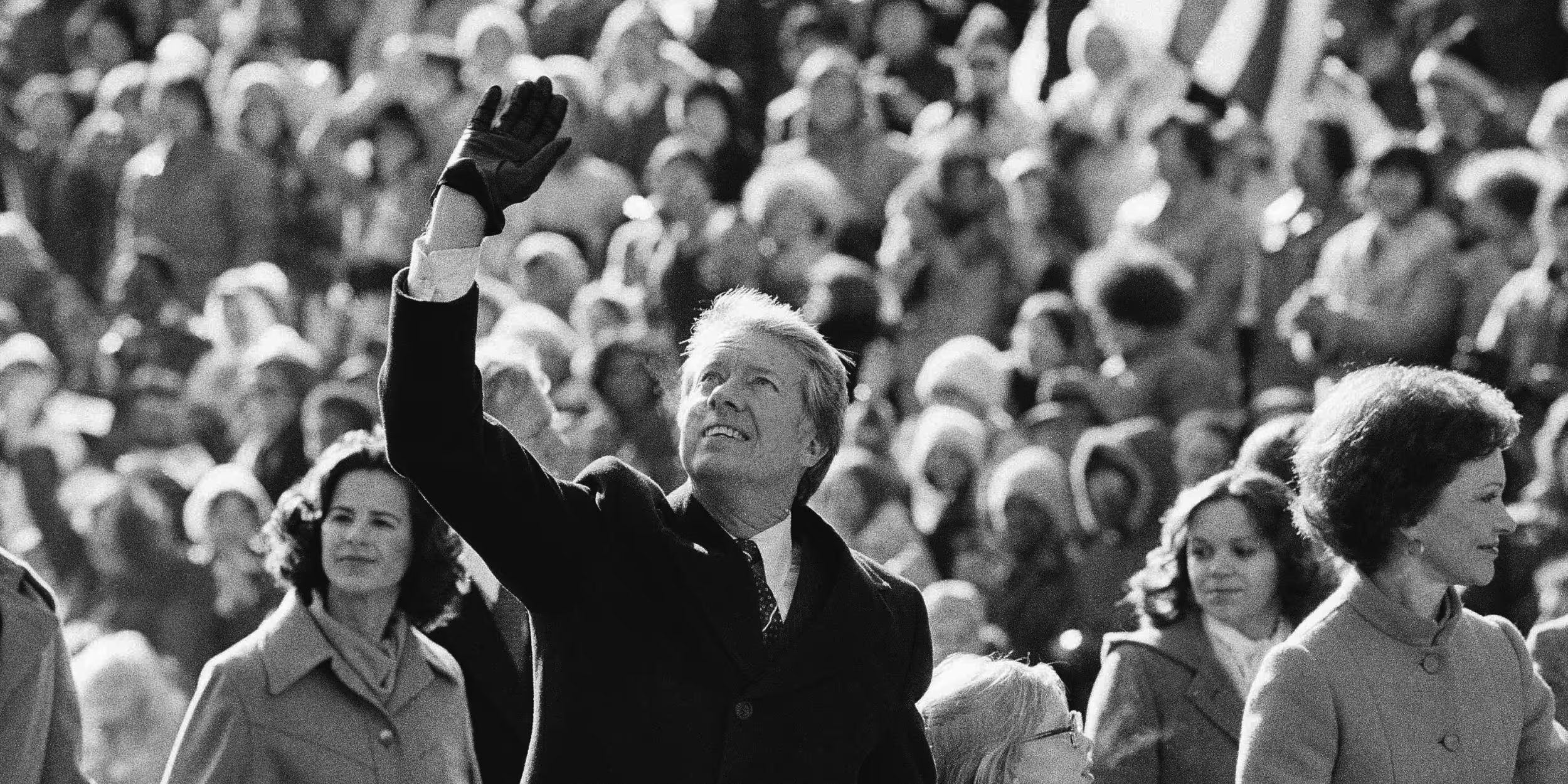Jimmy Carter's Presidency: A Legacy of Challenges and Visionary Impact - 30th December, 2024

Jimmy Carter's Presidency: A Legacy of Challenges and Visionary Impact - 30th December, 2024
30th December, 2024
Jimmy Carter, the 39th President of the United States, served from 1977 to 1981 during a period of economic turbulence and global uncertainty. Often overshadowed by the administrations that followed, Carter’s presidency has been subject to extensive criticism. However, many of the consequences of his leadership—both positive and negative—are frequently misunderstood or overlooked. A closer examination reveals a nuanced legacy that continues to influence America and the world today.
Economic Challenges and Missteps
One of the most contentious aspects of Carter’s presidency was his handling of the economy. The late 1970s were marked by stagflation—a combination of high inflation, stagnant economic growth, and high unemployment. Critics often blame Carter for failing to address these issues effectively. However, the roots of stagflation predate his presidency, stemming from the oil shocks of the 1970s and the monetary policies of previous administrations.
Carter appointed Paul Volcker as Chairman of the Federal Reserve in 1979, a decision that had profound long-term implications. Volcker’s aggressive interest rate hikes eventually tamed inflation but caused short-term economic pain. While Carter bore the political cost, this decision laid the groundwork for the economic stability of the 1980s and beyond.
Energy Policy: A Visionary Approach
Carter’s energy policies were ahead of their time. In response to the 1979 oil crisis, he championed energy conservation, renewable energy development, and reduced dependence on foreign oil. His establishment of the Department of Energy and initiatives such as tax credits for solar energy were groundbreaking.
Although his efforts faced resistance and were largely dismantled by subsequent administrations, Carter’s emphasis on energy independence has gained renewed relevance in the context of today’s climate crisis. His call for a “moral equivalent of war” to address energy challenges now appears prescient.
Human Rights and Foreign Policy
Carter’s foreign policy centered on human rights, a significant departure from the Cold War realpolitik of his predecessors. His administration pressured authoritarian regimes, supported democratic movements, and emphasized ethical considerations in diplomacy. This approach was exemplified by the Panama Canal Treaties, which returned control of the canal to Panama, and the Camp David Accords, which brokered peace between Egypt and Israel.
However, Carter’s idealism also faced criticism. His handling of the Iran Hostage Crisis—where 52 American diplomats and citizens were held captive for 444 days—was seen as weak and indecisive, overshadowing his other achievements. While the crisis highlighted the complexities of global diplomacy, it also exposed the limitations of Carter’s approach to balancing principle with pragmatism.
Environmental Stewardship
Carter’s environmental initiatives set important precedents. He expanded national parklands, protected millions of acres in Alaska through the Alaska National Interest Lands Conservation Act, and advocated for the Clean Air Act and Clean Water Act.
These measures reflected Carter’s commitment to environmental stewardship, a legacy that resonates as environmental protection becomes an increasingly urgent global priority. His actions demonstrated a long-term vision for sustainability that was rare among leaders of his era.
Public Perception and Political Consequences
Carter’s presidency was characterized by a lack of political charisma and an inability to navigate the entrenched power structures of Washington. His “outsider” status, which had been an asset during his campaign, became a liability in office. The perception of ineffectiveness, compounded by economic woes and the Iran Hostage Crisis, contributed to his loss to Ronald Reagan in the 1980 election.
Yet, Carter’s post-presidency has reshaped his legacy. His work with the Carter Center, particularly in global health, conflict resolution, and election monitoring, has earned him widespread respect and a Nobel Peace Prize in 2002. This extraordinary post-presidential career has highlighted the depth of his commitment to public service.
Reevaluating Carter’s Legacy
The consequences of Jimmy Carter’s presidency are multifaceted and often misunderstood. While his tenure was marked by challenges and perceived shortcomings, many of his policies and decisions have proven to be forward-thinking. His emphasis on energy independence, human rights, and environmental protection laid the groundwork for future progress, even if the immediate outcomes were less visible.
Carter’s presidency serves as a reminder that leadership is not always about immediate success but about planting seeds for long-term change. As history continues to reassess his impact, it becomes clear that Carter’s legacy is more complex and consequential than commonly acknowledged. His example offers valuable lessons about integrity, vision, and the enduring impact of principled leadership.
RECENT POST
- Nvidia Eyes the Quantum Leap…
- U.S. Futures Slip as Markets…
- Byrna Technologies Delivers Impressive Q1,…
- Crocs, Inc. (NASDAQ: CROX): A…
- Norwegian Cruise Line Holdings (NCLH):…
- "Wendy's (NYSE: WEN) Sees Steady…
- Federal Reserve Chair Jerome Powell’s…
- Equinor ASA (EQNR) Quarterly Earnings…
- Trump Signs Historic Bill to…
- Markets Respond to Trump's New…
- Mattel (NASDAQ: MAT): Resilient Growth,…
- Magnite Inc. (NASDAQ: MGNI): A…
- Trump Unveils $500 Billion AI…
- Rising Demand for VanEck Defense…
- In-Depth Analysis of Pinterest (NYSE:…
- Marathon Digital Holdings (NASDAQ: MARA)…
- Trump’s Return to Office on…
- Novo Nordisk (NYSE: NVO) Drives…
- Is Semrush Holdings, Inc. (NYSE:SEMR)…
- Woodside Energy (ASX:WDS) Reports Strong…
- SoFi Technologies Inc (NASDAQ:SOFI): Redefining…
- British American Tobacco (LON:BATS) Reports…
- Jimmy Carter's Presidency: A Legacy…
- US Stocks Decline Amid Profit-Taking…
- Upcoming Quarterly Earnings and Growth…
- Outlook for the US stock…
- British Equities Rise Amid Hopes…
- A world in Flux -…
- Why Capital Growth is Crucial…
- September 10th 2024 - Oil…
- Global M&A in 2H: A…
- Global stock markets take a…
- General Analysis of Adicet Bio,…
- On 22 May 2024 Nvidia…
- Copyright © 2025 Buttonwood Edge All Rights Reserved


